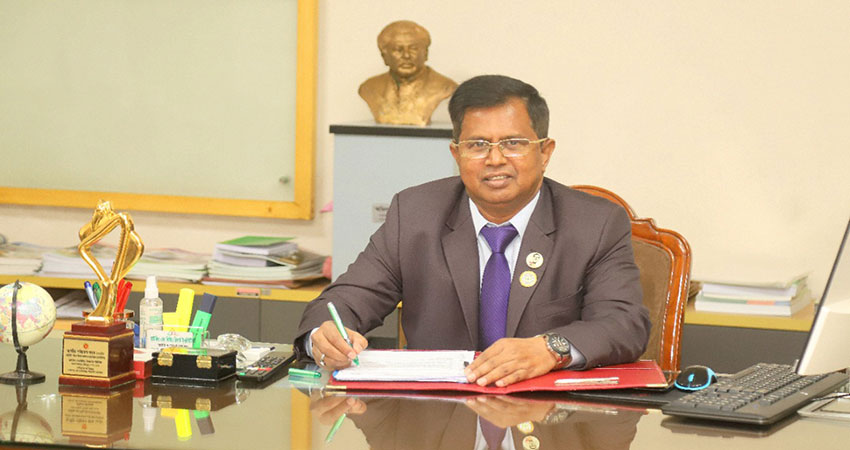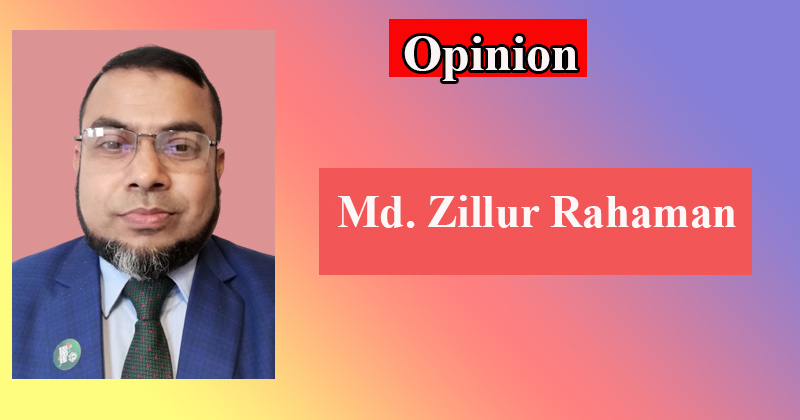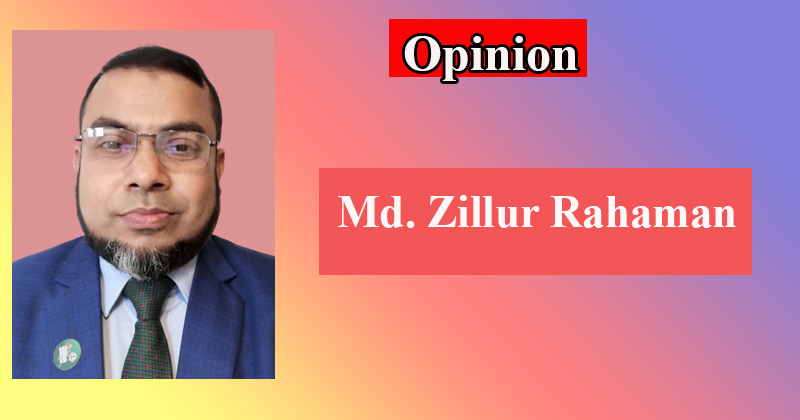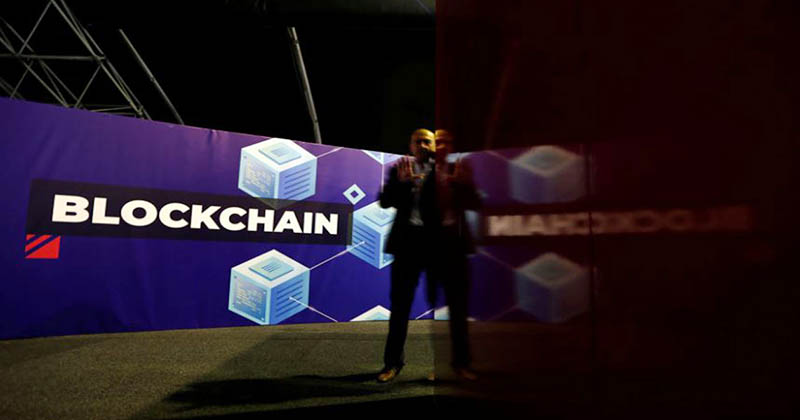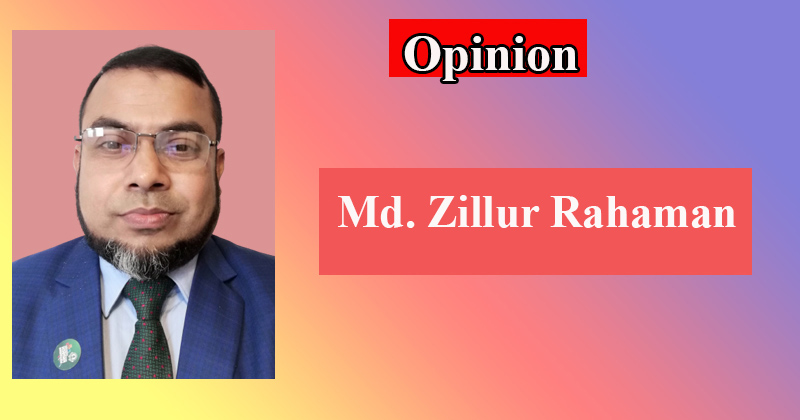Housing and Building Research Institute, a Autonomous body of the ministry of Housing and Public Works. The HBRI had started its journey as Establishment of Building Research Center in 1960. After achieving independence, Bangabandhu Sheikh Mujibur Rahman established HRBI to meet the demand of housing of huge population of the country using domestic materials and limited resources. Later it was transformed into an autonomous institution called Housing and Building Research Institute-HBRI. Engineer Md. Ashraful Alam is serving as the Director General of this institution. He talk with Daily Citizen Times about the organisation's current activities and future plans. Saying on his dream about the organisation, the DG said that he wants to develop HBRI as an international standard research institute. He hopes that HBRI will become a center of excellence for researchers and engineers from home and abroad.
The interview has been taken by Jannatul Firdaus Panna
HBRI is an institution of Bangabandhu's dream. We want to know about the organisation.
The Housing and Building Research Institute-HBRI is working with the goal of planned cities, safe and affordable housing. The mission of HBRI is to build sustainable, safe and affordable housing and infrastructure for the low and middle income people of the country by ensuring optimal use of land through sound planning and research. HBRI is the only research institute under Ministry of Housing and Public Works. The institute primarily researches alternative construction materials and technologies. It also provides consultancy services for building design. Similarly, HBRI provides training on alternative construction materials and technologies and encourages people to use them, provides consultancy services to various public and private organizations on construction related issues and helps in making related policies. Today's HBRI is the product of the far-reaching thinking of Bangabandhu Sheikh Mujibur Rahman. He established this organization with the aim of building sustainable and eco-friendly housing in war-torn Bangladesh in the shortest possible time, at low cost. In this continuation, we are now serving the people of the country.
Unplanned urbanization is a major problem in almost all cities of Bangladesh, including the capital Dhaka. Unplanned urbanization is one of the reasons behind traffic congestion. What role is HBRI playing in building planned cities, safe and affordable housing?
Building healthy and sustainable infrastructure is one of HBRI's goals. Terracotta bricks are a major cause of environmental pollution. As an alternative, I started using blocks. This brick is eco-friendly as well as stronger than terracotta bricks. Our research activities on terracotta brick alternatives are still ongoing.
HBRI is trying to make people interested in using alternative construction materials. The company also invented many construction materials. Is the use of alternative construction materials expensive or cost effective?
Construction materials developed by HBRI are much more cost effective than conventional construction materials. A five storied building has been constructed at HBRI campus using ferrocement technology. Through the use of this technology, 30 percent money has been saved compared to the conventional cost. We are working to further reduce construction costs through alternative construction materials. We are working with materials like river dredged soil, rice husk from husking mill, ceramic factory waste for making brick blocks. We are hopeful that these materials will further reduce the cost of block production.
How much people are accepting these alternative building materials of HBRI?
It is true that many people are still not aware about the activities of HBRI. This matter came to my attention after joining here. As a first step to address the issue, we have taken the initiative to update the HBRI website. Now people from any part of the world are able to get all the necessary information about our activities from this website. Print and electronic media are also taking initiatives to motivate people to use alternative construction materials.
HBRI will also participate in the exhibition to be held in Dubai next October with various innovations. Prime Minister Sheikh Hasina has directed to stop using terracotta bricks by 2025. We are working towards achieving the goal.
Alternative construction materials also require skilled construction workers. Is HBRI doing any work on the matter?
Training required for providing skilled construction workers. HBRI conducts mason training for creating number of construction workers. In this training, the construction workers got hands-on knowledge about environment-friendly construction materials and technologies. In the current Corona situation, this training program is being conducted online. HBRI is also going to implement a project to create five lakh skilled construction workers for sustainable and safe housing.
Is HBRI conducting any research work over constructing of heat tolerant buildings?
We are working in a project a jointly with Japan aiming to invent such special type of brick. Such type of brick will be very temperature resistant. The house will be cool on hot days and hot on cold days. Besides, we are also working on the design of the building. Adequate light and ventilation facilities are kept in these designs. With the technology developed and designed by HBRI, the building will not need much air conditioning.
Housing is still a major problem in Bangladesh. The problem is more pronounced in urban areas. How to build affordable and safe housing for all?
It is possible for low and middle income people to construct affordable and sustainable buildings with new technology and alternative construction materials. This requires proper planning. Responsible organizations including HBRI are working with these plans. Plans are being made to bring not only urban areas but also rural people under improved housing facilities.
Ashraful Alam is a bright star in a colorful professional life Engineer Md. Ashraful Islam is a shining star of a colorful professional life. Born on January 31, 1967 in Digdair village of Sonatala upazila of Bogra district in a noble Muslim family. Father late Kashem Ali Akand and mother late Amena Khatun. He passed SSC in 1982 in First Division with Star Marks from Korpur Bi-Lateral High School, and passed HSC in first division with Star Marks in 1984 from Pabna Cadet College. He obtained B.Sc Engineering (Civil) degree from Rajshahi University of Engineering and Technology-RUET in 1989 as 2nd in First Class in merit list. He also obtained MBA degree from Stamford University Bangladesh in 2009. |
HBRI has conducted many training programs under the slogan 'Build your own home on yourself’. We want to know about it.
'Build your own home on yourself’ is onne of the most successful training programs of HBRI. The organisation has trained 94 batches so far. The trainees have been given the necessary ideas in these trainings on various topics including design and how the foundation of the house will be, why the soil test is needed and in which institution the soil test can be done. Basic understanding of each step or stage of house construction is given in these trainings. As a result, every trained people on himself can supervise whether the construction work of his home is doing correctly and following all the necessary rules or not.
HBRI is also working on earthquake resistance of existing infrastructure in urban areas of the country including Dhaka. I want to know about it.
Geographically, Bangladesh is prone to earthquakes. In this context, HBRI is conducting a study with the help of JICA to find out how earthquake resistant the existing infrastructures of Bangladesh are or how many buildings are at risk of earthquakes. The work of which is almost at the end. In the meantime, 800 buildings in Dhaka have been surveyed. We have classified buildings as per their status. Buildings which are at high risk are placed in the 'Red' zone, relatively low risk buildings in the 'Yellow' zone and safe buildings in the 'Green' zone. The results of the research will be submitted to the government soon. In the light of which the government and responsible agencies of the government will adopt various policies and strategies to ensure safe infrastructure.
We would like to know the future plans of HBRI.
After joining the organization which was neglected for a long time, I took the initiative to create a new organizational structure. In addition to increasing the manpower, we have taken the initiative to set up offices in the divisional cities of the country. I dream that HBRI will one day become an international standard research institute. It will become a 'Center of Excellence' for researchers and engineers from home and abroad. HBRI will work at the global level beyond the country's development and innovation.

